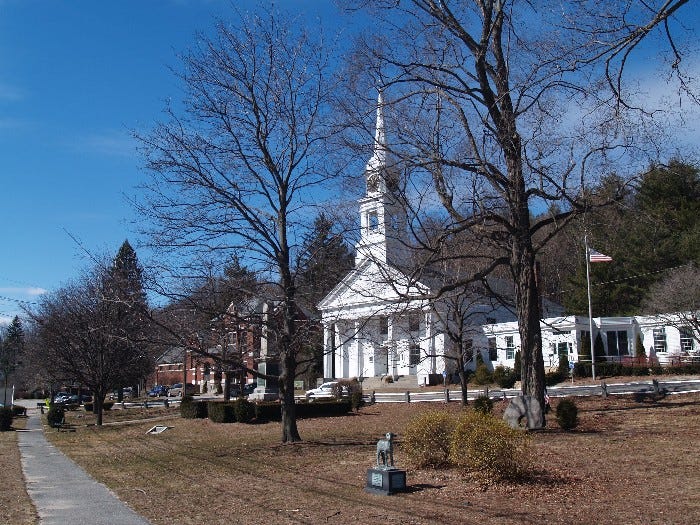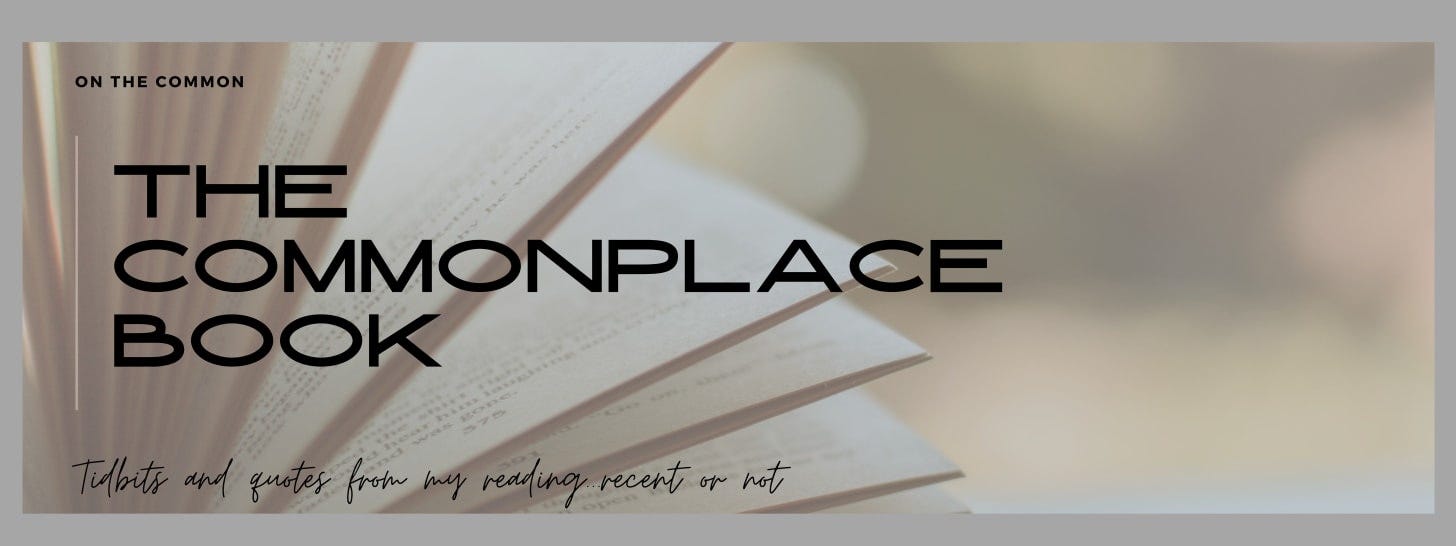Hello,
All the People are home with us again now, and someone was playing a ukelele in the backyard yesterday, which means summer is officially here at the Keller home. I’m cutting hydrangeas and drinking iced coffee. It’s almost a cliche.
If it’s not summer where you are quite yet, hang on. It’s soon.
The Part Where There’s an Essay: Memorial Day, Sterling, Massachusetts
Memorial Day in my hometown growing up was something out of a postcard. It felt like the beginning of summer, even though school wouldn’t let out till mid-June.
By the end of May, the weather was mild enough for me to wear shorts and a sweatshirt, my favorite combination of garments, still. School wouldn’t be out for another three weeks—my birthday was a week away—but we had Monday off for Memorial Day.
Leaving our house midmorning and walking down the hill put us at the town common in time to stake out “our spot”—on the curb not far from the statue of Mary’s little lamb1. Most New England towns—if they have curbs—have square, granite curbs (there is a lot of granite around), and they make for good low benches for parade viewing.
By the time it made the circle around the common in the middle of town, the parade had already visited several cemeteries, as well as the green behind the firehouse. From the gazebo on the green, a local contest-winning eighth grader stepped forward to a crackling microphone and recited the Gettysburg Address.
Up from the gazebo stop, turn right, and straight down Main Street, past Apple Town Market, across the street from the library parking lot, where legend had it that police officers would ticket pedestrians for jaywalking. Past the hardware store, the town hall, and the bank, and then left before the light department building.
The band, “rented” from a nearby city because the town wasn’t large enough to field an entire marching band, was usually near the front of things. There was a car with the town selectmen, followed by our town’s veterans, men of varying ages who had been in active duty of one sort or another. The policemen marched, and so did some of the volunteer firemen.
The scouts followed: a menagerie of tiny Brownies with sashes askew, shepherded by older Girl Scouts attempting to mother any child who crossed their path. The year I marched among them, I was forced to wear my transparent pink raincoat, as it rained all morning. Just behind, the Cub Scouts bore their sign proudly, though one side was higher than the other, given the unsynchronized timing of growth spurts. The Boy Scouts were mostly grumpy, having been made to assemble early and march all over town on their day off.
In order to make the whole thing last longer, sometimes the fire trucks would be at the end, and one year, even some DPW trucks were tacked on as a caboose. The entire assembly wrapped around the common, and we stood to face the interior of the oval for the proceedings. I faced the white-steepled Congregational Church where my friend’s father was the pastor. I had once attended preschool in that building, the school having been founded by my mother and her two friends.

There was a reading, a prayer, a moment of silence, and a volley of gunfire. “Taps” was played, followed by an “echo” rendition from beyond my brick elementary school at the head of the oval. I peeked over to look for the lone trumpeter standing behind the school, back by the swingset. We used to line up on the hopscotch squares once recess was over. I tore my white tights about once a month, falling on the cement while jumping rope or playing football with the boys.
It was always Dad’s goal to get the pool usable by Memorial Day, which meant he wrestled the cover off when things thawed out in March or April, and then spent another month of weekends trying to get the water clean and ready for swimming. We would jump in after lunch, regardless of how cold it was. The water was just below seventy degrees if we were lucky. Many years it was colder than that.
It was traditionally Mom’s first cookout of the year, so she would mix up potato salad and macaroni salad, and buy lots of chips. Hamburgers and hot dogs were the go-to, but I remember a few years when we’d have barbeque chicken (nearly always overdone) or chuck steak, marinated with oil and mustard. Friends would often come home from church with me on Sunday, intent on spending the night and staying for the parade, lunch, and swimming the next day.
The afternoon would warm up, burning off the clouds from the morning and coming to the aid of the chilly swimmers. We laid our beach towels out on the sidewalks around the pool and aimed for our first tan of summer. Beside us, Mom’s impatiens and hostas would just be getting started. The day slipped away in the smell of gas grills, chlorine, and sunscreen. Summer was close.
For the Anglophiles
Do you guys know about
?Reads & Listens of the Week
Since my youngest son saw him live last spring, we’ve become bigger fans of Jon Batiste’s music. You may have seen him perform the National Anthem at this year’s Super Bowl. His Beethoven Blues album is often playing at our house now. (We also enjoyed the Netflix documentary American Symphony.)
From a writing perspective, I am always very glad to see long-form articles in a major sports outlet. Here, ESPN features a long piece on the history of the Boston Celtics. I enjoyed every bit of it, though admittedly I am quite biased.
During the month of May, in addition to Scripture, I’ve been reading Richard Wilbur’s poetry every morning. It has done me much good. Therefore, I commend to you this essay by my friend
on Why Poetry? Poetry is true in a false world.The happiest home is not one which has never known grief—but one whose songs of gladness have in them a minor strain. –J. R. Miller
Mary’s little lamb was the pet of Mary Sawyer, who was a real person who lived in my hometown. Her lamb did indeed follow her to school one day. The schoolhouse is no longer in town, having been bought by Henry Ford for his museum, and the Sawyer family barn, where the lamb was born, burned down on Halloween when I was very young. But if you drive through Sterling, you will see a tiny statue of a lamb on the common.





What beautiful memories so eloquently shared.